Tharaj Thaj
Low-Complexity Linear Diversity-Combining Detector for MIMO-OTFS
Jan 27, 2022Abstract:This paper presents a low complexity detector for multiple-input multiple-output (MIMO) systems based on the recently proposed orthogonal time frequency space (OTFS) modulation. In the proposed detector, the copies of the transmitted symbol-vectors received through the different diversity branches (propagation paths and receive antennas) are linearly combined using the maximum ratio combining (MRC) technique to iteratively improve the signal to interference plus noise ratio (SINR) at the output of the combiner. To alleviate the performance degradation due to spatial correlation at the receiver antennas, we present a sample-based method to estimate such correlation and find the optimized combining weights for MRC from the estimated correlation matrix. The detector performance and complexity improve over the linear minimum mean square error (LMMSE) and message passing (MP) detectors proposed in the literature for MIMO-OTFS.
Unitary-Precoded Single-Carrier Waveforms for High Mobility: Detection and Channel Estimation
Jan 25, 2022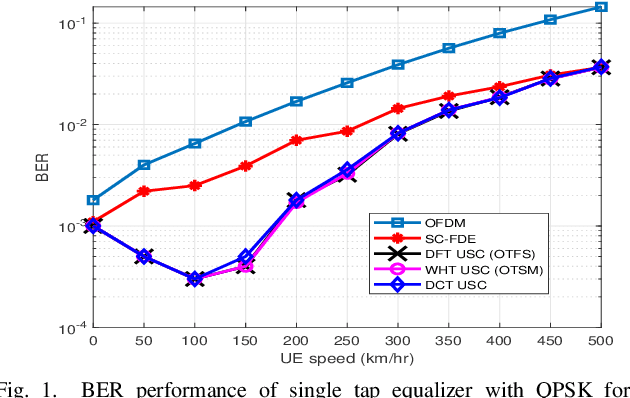
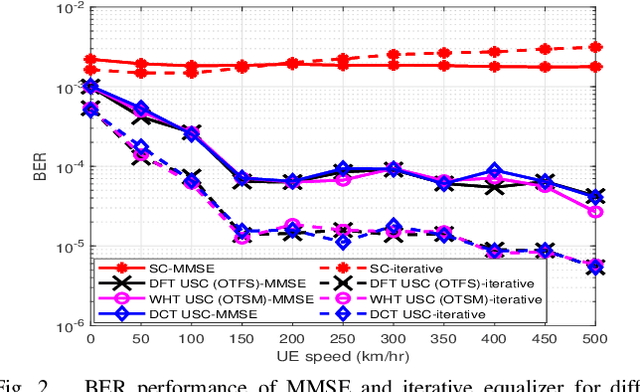
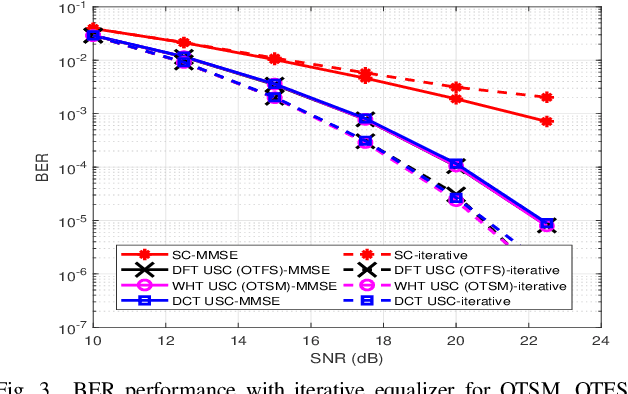
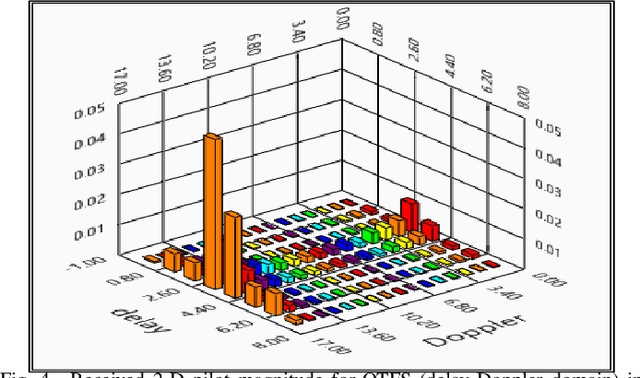
Abstract:This paper presents unitary-precoded single-carrier (USC) modulation as a family of waveforms based on multiplexing the information symbols on time domain unitary basis functions. The common property of these basis functions is that they span the entire time and frequency plane. The recently proposed orthogonal time frequency space (OTFS) and orthogonal time sequency multiplexing (OTSM) based on discrete Fourier transform (DFT) and Walsh Hadamard transform (WHT), respectively, fall in the general framework of USC waveforms. In this work, we present channel estimation and detection methods that work for any USC waveform and numerically show that any choice of unitary precoding results in the same error performance. Lastly, we implement some USC systems and compare their performance with OFDM in a real-time indoor setting using an SDR platform.
Orthogonal Time Sequency Multiplexing Modulation: Analysis and Low-Complexity Receiver Design
Apr 13, 2021


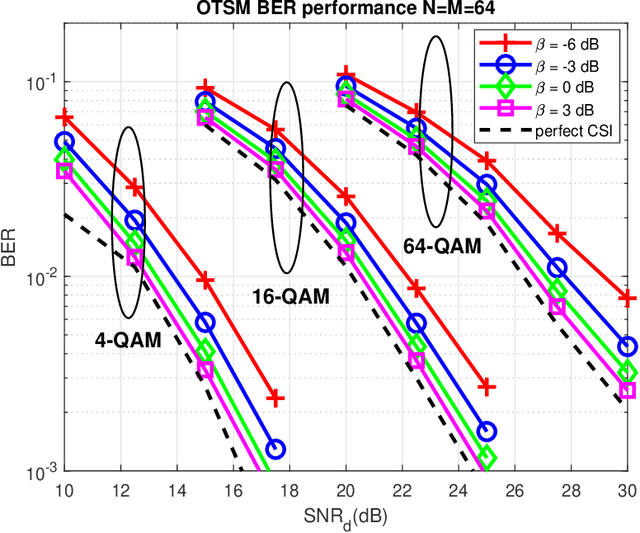
Abstract:This paper proposes orthogonal time sequency multiplexing (OTSM), a novel single carrier modulation scheme that places information symbols in the delay-sequency domain followed by a cascade of time-division multiplexing (TDM) and Walsh-Hadamard sequence multiplexing. Thanks to the Walsh Hadamard transform (WHT), the modulation and demodulation do not require complex domain multiplications. For the proposed OTSM, we first derive the input-output relation in the delay-sequency domain and present a low complexity detection method taking advantage of zero-padding. We demonstrate via simulations that OTSM offers high performance gains over orthogonal frequency division multiplexing (OFDM) and similar performance to orthogonal time frequency space (OTFS), but at lower complexity owing to WHT. Then we propose a low complexity time-domain channel estimation method. Finally, we show how to include an outer error control code and a turbo decoder to improve error performance of the coded system.
 Add to Chrome
Add to Chrome Add to Firefox
Add to Firefox Add to Edge
Add to Edge